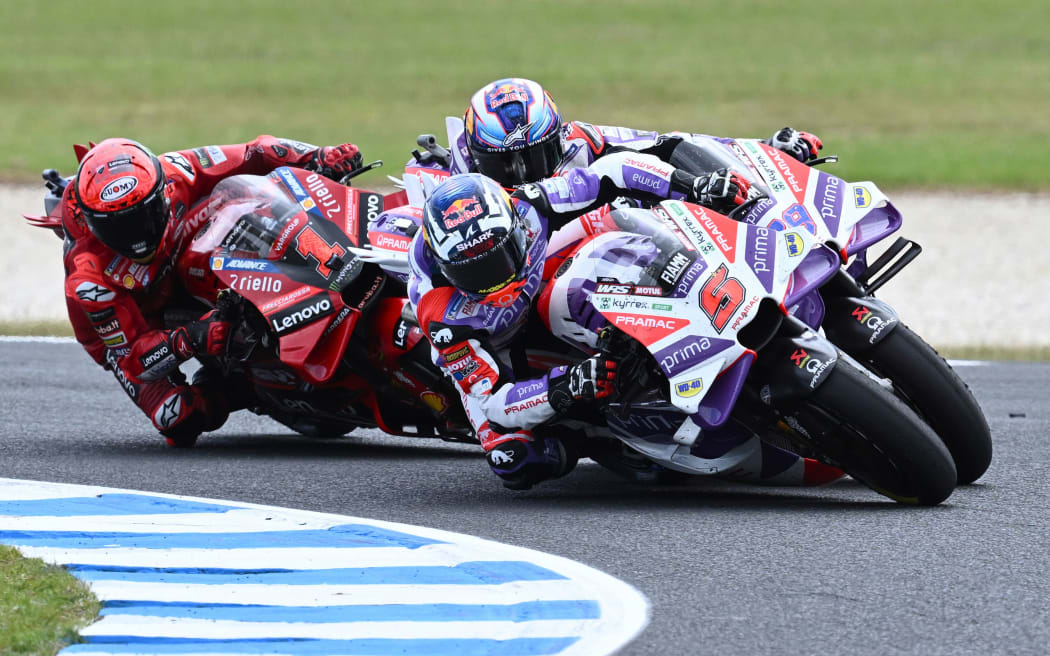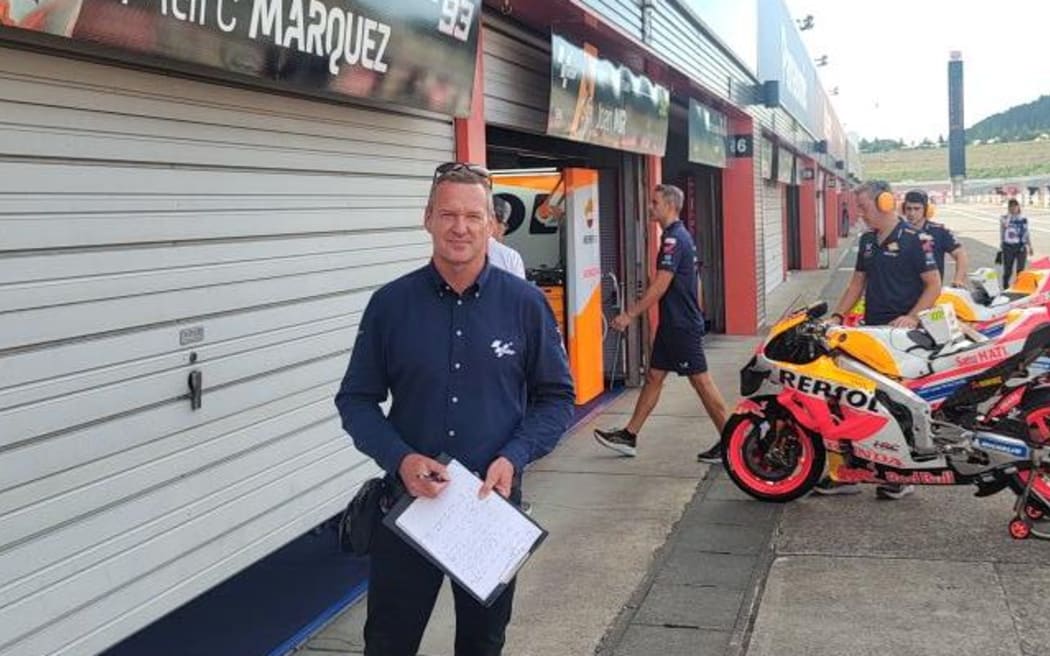
Johann Zarco of France for Prima Pramac Racing leads during the 2023 Australian Motorcycle Grand Prix Photo: PHOTOSPORT
Former New Zealand motorbike racer Simon Crafar has been impressed with the development of sustainable fuels in racing and believes they could have been introduced this past season.
In 2024 MotoGP will start it's journey to end the use of fossil fuels in it's championships.
MotoGP is the world championship of motorbike racing and runs four classes, MotoGP (1000cc four-cylinder bikes), Moto2 (765cc three-cylinder), Moto3 (250cc one-cylinder) and MotoE.
In 2021 MotoGP announced their intention to shift to sustainable fuels with there to be a minimum 40% non-fossil origin by 2024, and by 2027, fuel in all MotoGP classes would be of 100% non-fossil origin.
Crafar raced in the world 500cc championship and Superbikes during the nineties and is now part of the MOTOGP commentary team.
"Straight up the way that they're performing, I think they could have gone 100 percent (next year)," Crafar told RNZ.
"There are some unknowns but performance wise they're the same (as current fuels)."
The new fuels will either be laboratory-created, using components sourced from a carbon capture scheme, or derived from municipal waste or non-food biomass.
In announcing the extension of their partnership this year, Ducati and Shell said the development of sustainable fuels was the key focus for both organisations.
Different fuel types are already being used in MotoGP because of the different track types.
A bike is limited to 21 litres of fuel and so depending on the speed of a track different fuels are used to make sure that they can finish the race.
While there are few secrets between the fuel manufacturers, Crafar accepts that there could be some inequality in performance in the first couple of years.
"There is always someone that produces something a little bit better, but the amount of research they're putting into this, I expect them to all be competitive.

Former New Zealand motorbike racer Simon Crafar Photo: Supplied / X
"The manufacturers have been putting bikes on the dyno (dynamometer) for days and running engines til destruction.
"They're also testing the limits of detonation which also damages the engine, so it's been an extensive process for both manufacturer and fuel supplier."
The production process of synthetic fuels is very energy intensive compared to fossil fuels. Half of the energy is lost in the production process.
Carbon capture involves the CO2 emissions being captured from the exhaust and then being stored (typically underground).
Crafar isn't so positive about the immediate impact of MotoE.
He says while any new technology is good the consumer, E-bike racing is a long way from being competitive with the existing machines.
"Because of the weight and distance involved there is no way MotoE could compare with MotoGP at the moment."
A MotoE bike weighs about 100kg more than a MotoGP bike and at the moment a MotoE race is run over eight laps because of the limited battery life.
"The batteries have got so far to go before they can supply enough energy and not weigh too much to allow a longer race.
"It needs developing obviously, but I can't see electric being as competitive for a very long time."


